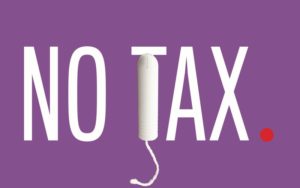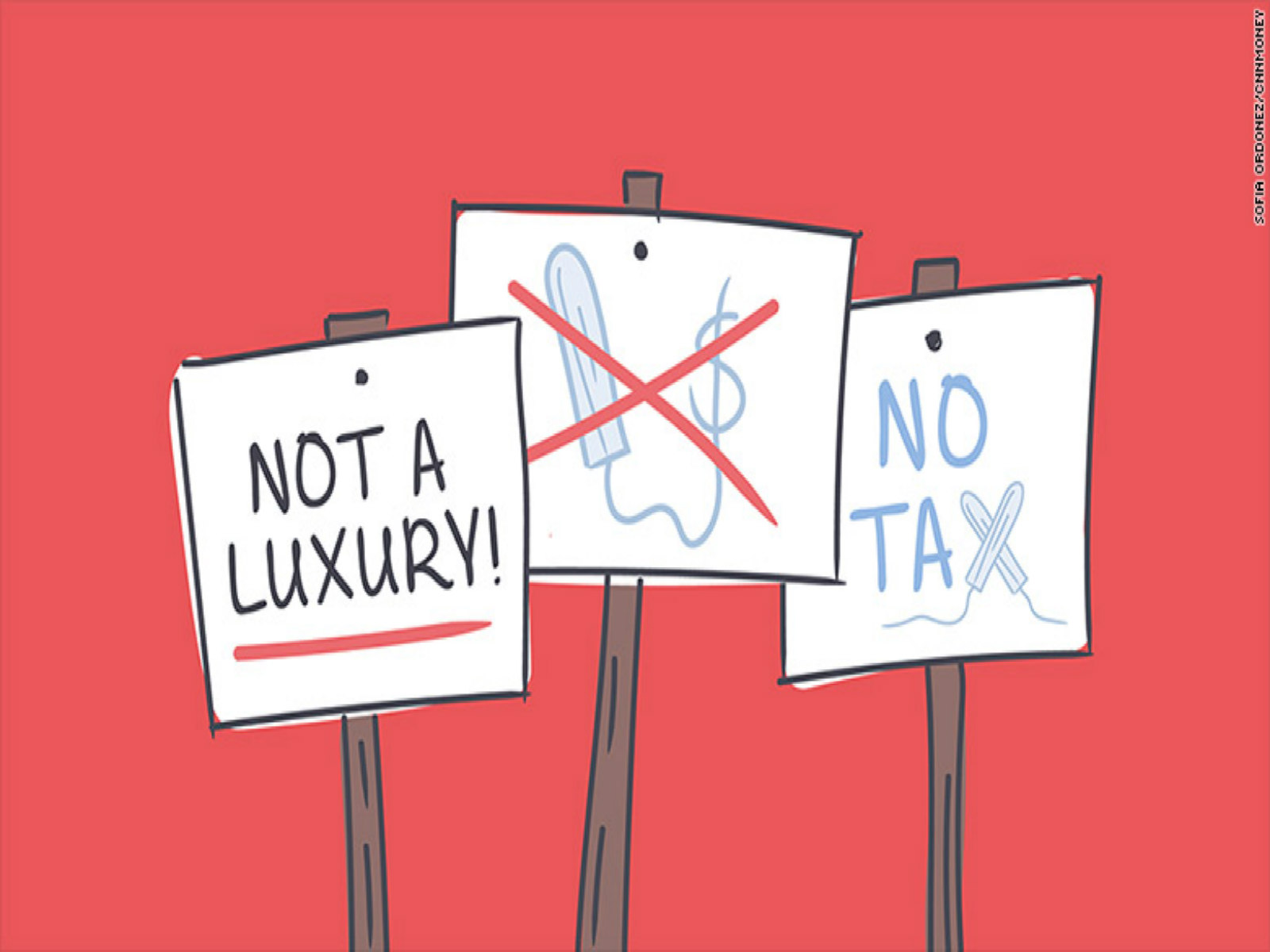WEST LONG BRANCH, N.J.–Hey ladies! If making 79 cents to the dollar compared to your male counterpart wasn’t infuriating enough, let’s hope you don’t plan on moving out of New Jersey anytime soon. Of the 45 states with a sales tax in place, only five of them have explicitly removed feminine hygiene products such as pads and tampons from the list of taxable “luxury” products.
According to an e-mail sent to Fusion by a representative of the Idaho State Tax Commission, “Tampons and pads are used for feminine hygiene and not for use in the diagnosis, cure, mitigation, treatment or prevention of feminine disease.” While it’s hard to argue the case that menstruation is a disease, I think I can speak for all women when I say it certainly is not something we experience by choice.
Naturally, taxes are a difficult topic to discuss as a nationwide issue due to the fact that they are regulated on a state level. It is not impossible though. Every state has its own parameters for sales tax. According to the Tax Foundation, the five states without a statewide sales tax are Alaska, Delaware, Montana, New Hampshire, and Oregon. However, of the five, Alaska and Montana do permit localities to charge sales tax if they wish.

The remaining 45 states with statewide sales tax range from 9.54 percent in Tennessee to 4.35 percent in Hawaii. Most of these states make an exception for necessities, which is where the issue of feminine hygiene products comes into play. Common sales tax-exempt items include groceries, medication, and food stamp purchases. In some states, clothing is even exempt from being taxed. Yet somehow, most states refuse to consider feminine hygiene products as a necessity.
The “Tampon Tax” is first and foremost an example of institutional gender inequality. Women will spend roughly $170 annually on feminine hygiene products themselves. According to California assemblywoman Cristina Garcia, a woman in California will spend roughly $3,360 over a span of 40 years. Being taxed on top of that is simply adding insult to injury. And meanwhile, men can keep that same $3,360 tucked away safely in their bank accounts.
Megan Tong, a senior graphic design major at Monmouth, argued that “taxing tampons is like taxing toilet paper.” (It’s important to note that New Jersey and Pennsylvania are the only states that have also exempt a tax on toilet paper.)
Tong raises an important question in asking, “What makes one different than the other? They are both used for hygienic reasons.” In states that dismiss feminine hygiene products as a tax-exempt necessity, there is still a gender disparity in that toilet paper is something used across the gender spectrum. Meanwhile, pads and tampons are still items used exclusively by women.
Living in New Jersey, we are blissfully unaware of the fact that women across the country are being taxed for something that is part of our biological makeup.

“I wasn’t aware that something like this was even happening,” said Kristen Mehlig, a senior elementary education major. “It’s a ridiculous tax that shouldn’t exist.”
However, even outside of our New Jersey bubble, not everyone is aware of tax–including the leader of the free world.
In February, Internet personality Ingrid Nilsen interviewed President Obama. In response to her question about why tampons were considered “luxury goods” despite a general consensus against that notion, he acknowledged the tax was unfair but admitted to not being aware of it.
“The basic idea is that women should not be at a disadvantage in the health care system and this is just one more example of it,” he said, “which I confess I was not aware of until you brought it to my attention.”
Though the women of New Jersey are not directly affected by the “Tampon Tax”, it’s time we stand together as a nation against America’s patriarchal government. Inform your friends and if you aren’t a New Jersey native, and look into your home state’s laws. While support from state government may not be on your side, just remember that President Obama does.




